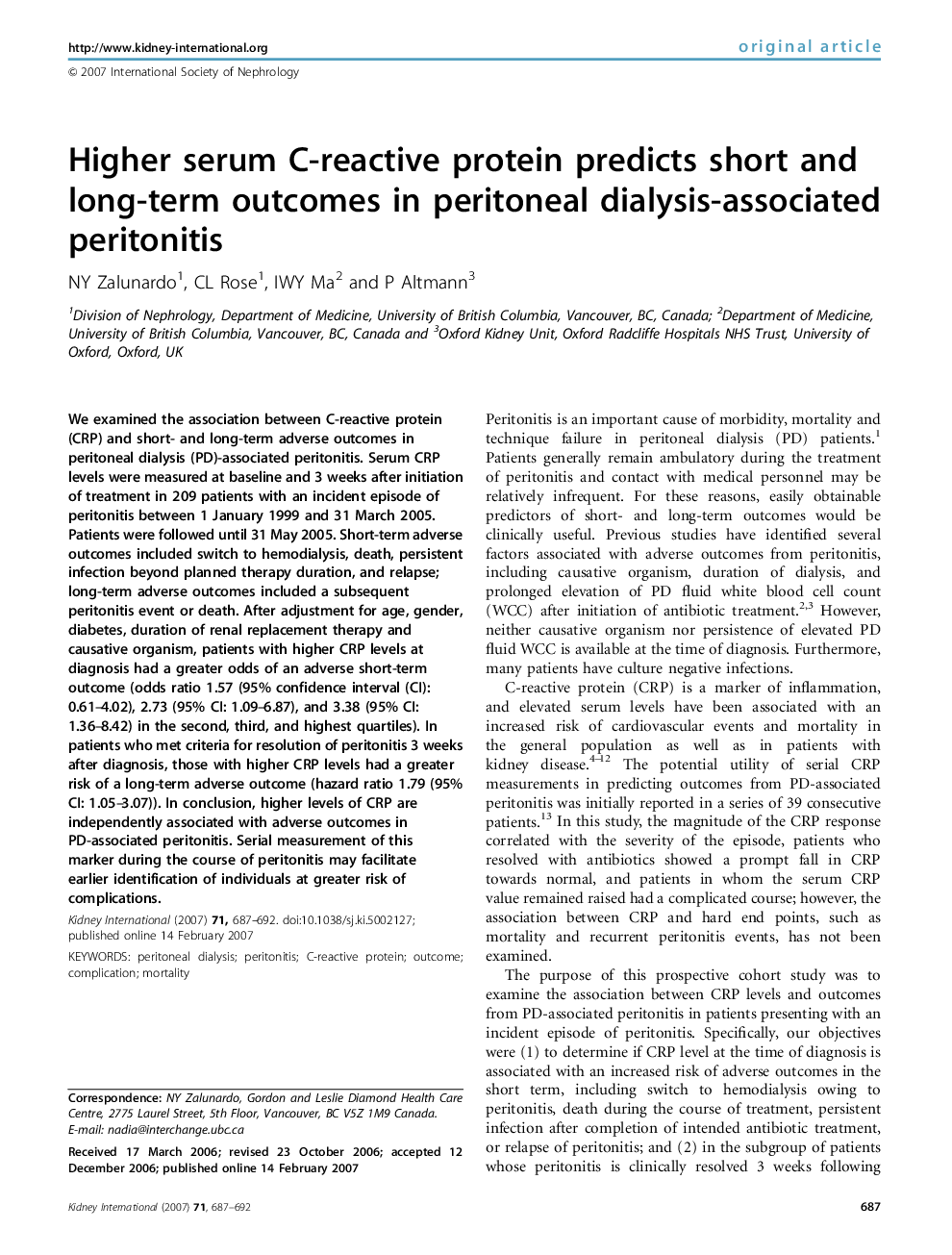| Article ID | Journal | Published Year | Pages | File Type |
|---|---|---|---|---|
| 3889194 | Kidney International | 2007 | 6 Pages |
We examined the association between C-reactive protein (CRP) and short- and long-term adverse outcomes in peritoneal dialysis (PD)-associated peritonitis. Serum CRP levels were measured at baseline and 3 weeks after initiation of treatment in 209 patients with an incident episode of peritonitis between 1 January 1999 and 31 March 2005. Patients were followed until 31 May 2005. Short-term adverse outcomes included switch to hemodialysis, death, persistent infection beyond planned therapy duration, and relapse; long-term adverse outcomes included a subsequent peritonitis event or death. After adjustment for age, gender, diabetes, duration of renal replacement therapy and causative organism, patients with higher CRP levels at diagnosis had a greater odds of an adverse short-term outcome (odds ratio 1.57 (95% confidence interval (CI): 0.61–4.02), 2.73 (95% CI: 1.09–6.87), and 3.38 (95% CI: 1.36–8.42) in the second, third, and highest quartiles). In patients who met criteria for resolution of peritonitis 3 weeks after diagnosis, those with higher CRP levels had a greater risk of a long-term adverse outcome (hazard ratio 1.79 (95% CI: 1.05–3.07)). In conclusion, higher levels of CRP are independently associated with adverse outcomes in PD-associated peritonitis. Serial measurement of this marker during the course of peritonitis may facilitate earlier identification of individuals at greater risk of complications.
